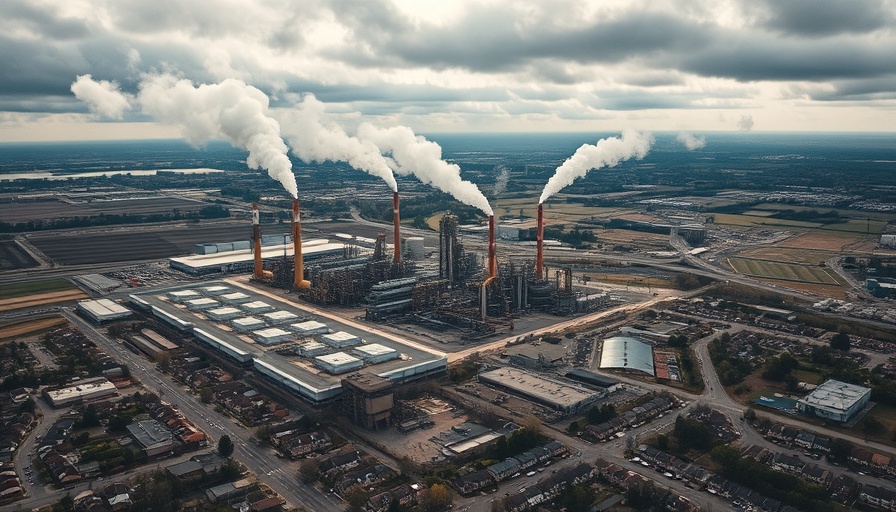
The Disproportionate Impact of Fossil Fuel Companies on Climate Change
In a startling revelation, a recent study reveals that just 36 fossil fuel companies account for over half of the world’s carbon emissions. According to the Carbon Majors database, these companies are responsible for a staggering 33.9 gigatons of carbon dioxide equivalent emissions in just the year 2023 alone. This figure underscores a troubling trend: emissions are not only continuing to rise but are being driven by a small group of entities whose business practices are fundamentally jeopardizing global stability and health.
Understanding the Numbers: Who Are the Major Offenders?
The data highlights that fossil fuel companies contribute to approximately 78.4% of total carbon emissions, indicating a serious imbalance in responsibility. Among the worst offenders, Saudi Aramco, a state-owned entity, ranks as the highest emitter, responsible for enough emissions to place it as the fourth largest polluter in the world if it were a country. Other notable contributors include ExxonMobil, Chevron, and Shell, all investor-owned companies that significantly impact our environment.
The Urgency of the Situation: Voices from the Environmental Community
Voices from the scientific and environmental communities are calling for urgent action. Johan Rockström, director of the Potsdam Institute for Climate Impact Research, emphasizes that the continued rise in global greenhouse gas emissions indicates a need for immediate and global regulatory changes. “Climate disasters are hitting hardest in regions where people have contributed the least,” he notes, advocating for accountability and a swift transition away from fossil fuels.
Coal and Cement: The Major Contributors
Interestingly, coal remains the largest source of emissions, constituting 41.1% of the total in the database, while emissions from cement production have significantly increased—up by 6.5% since 2022. This increase demonstrates how both traditional energy sources and industrial processes are contributing to a rising tide of emissions that key corporations must take responsibility for.
The Role of Companies Versus Governments
Despite pledges from various global leaders and corporations promising to cut emissions, the reality is grim. The updated data has shown that out of 169 active companies, 93 managed to increase their emissions from 2022 to 2023. Tzeporah Berman, founder and co-chair of the Fossil Fuel Non-Proliferation Treaty Initiative, remarked, “It is clearer than ever that dirty private companies... will never choose to self-regulate.” This perspective highlights the critical need for government intervention to cap fossil fuel expansion and promote sustainable practices.
Future Predictions: What Lies Ahead
If these trends continue without significant changes, we could reach unmanageable tipping points affecting global climate stability. The disproportionate emissions caused by a small number of companies not only hinder global efforts to combat climate change but also exacerbates social inequalities by disproportionately affecting populations that are least responsible for emissions.
Empowering Change: What Can Be Done?
As individuals and communities become more aware of these issues, there is a growing call to action. Consumers can influence corporations by choosing sustainable practices, supporting renewable energy, and advocating for policies that hold companies accountable. Change can also stem from grassroots movements that promote eco-friendly living and demand corporate responsibility.
As we venture further into the climate crisis, it is essential that awareness leads to action. Each of us can play a part in advocating for a cleaner, healthier planet for generations to come.
 Add Row
Add Row  Add
Add 



 Add Row
Add Row  Add
Add 

Write A Comment